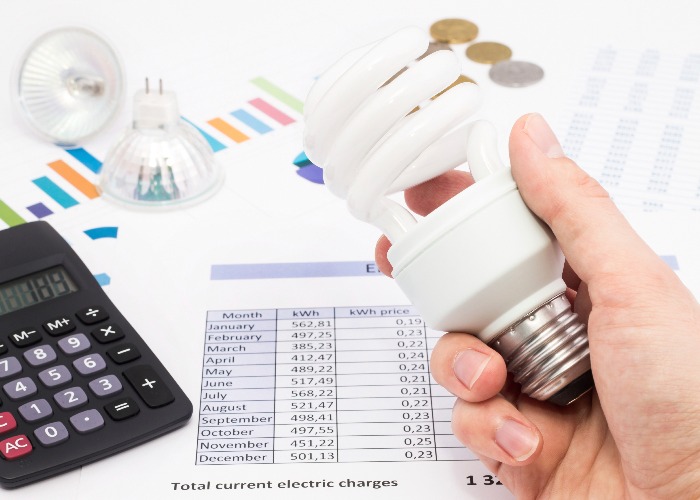Soaring costs: Government announces £400 energy bill help for households

Every household will receive the handout, while millions of pensioners will receive an additional £300 help in the winter.
The Government has announced additional financial support for households across the country facing escalating energy bills.
With sky-high energy bills set to rocket even further this Autumn, Chancellor Rishi Sunak has revealed every household will receive a one-off £400 payment towards their energy bills.
This will replace the £200 energy 'loan' that was initially planned to help ease the impact of soaring energy costs.
Extra help for those on low incomes, pensioners
The chancellor has also announced a raft of additional payments that will be made available to select groups.
The millions of pensioners who receive the Winter Fuel Payment each year will get an extra £300 'cost of living payment' this winter, meaning they could receive up to £600 this winter.
Low-income households which receive means-tested benefits will receive a significant £650 boost, which will be paid out in two instalments in the second half of this year.
Finally, those who receive disability benefits will get an extra one-off payment of £150.
This new support is to be funded by the Government’s own version of a windfall tax on the excess profits currently being enjoyed currently by oil and gas firms.
Record high energy bills
The introduction of further support comes after predictions of extraordinary further increases to the energy price cap later this year.
Appearing in front of a parliamentary select committee, Jonathan Brearly, the chief executive of energy regulator Ofgem, said that its current forecast was for the energy price cap to be hiked to around £2,800 in October.
This would cap an incredibly painful year for energy bills, given the cap was already ratcheted up by 54% in April to £1,971.
We already know that energy bill debt is at record highs, with around six million households failing to pay their bills.
That figure is likely to increase substantially in the months ahead, even with some form of additional Government support.
Will the support make a difference?
First and foremost, it’s welcome that the Government is finally doing something.
Sunak had previously tried to argue that announcing support now, ahead of likely price rises in the winter, would be “silly”.
But given Ofgem’s predictions of the jump to the energy price cap likely to occur in October, deciding to do nothing was no longer really a sustainable approach.
However, there are issues with the way this is being handled, particularly the fact that the £400 help is being handed out universally.
The reality is that providing support in this way is easy, from an administrative perspective.
There are no decisions over who gets the support, or how much, it simply goes out to everyone.
On the plus side, that means that no one who could use that help misses out, which isn’t the case with some benefits where billions go unclaimed because Brits aren’t sure how to go about claiming the cash.
But equally, dishing out the money in this way also means that plenty of households that don’t need the support will get it anyway.
Yes, we are all seeing our energy bills rocket, but some people are well-positioned to absorb those rising bills, even given the forecasts for greater bill jumps later this year.
These people are being handed around £400 in financial support that they simply don’t need.
This is problematic for two reasons. Obviously, it’s unfair.
Just from an ethical point of view, it does not feel right to give money to people that don’t need it, particularly given the households most in need of support likely need far more than £400 to keep their heads above water.
But there’s also the question of inflation. We are already staring down the barrel of the highest rate of inflation in four decades, and this sort of indiscriminate payout risks making that worse.
According to the reports, the Treasury will claim that this help is “temporary and targeted”. The latter is plainly untrue; only time will tell if the former is as well.
Comments
Be the first to comment
Do you want to comment on this article? You need to be signed in for this feature